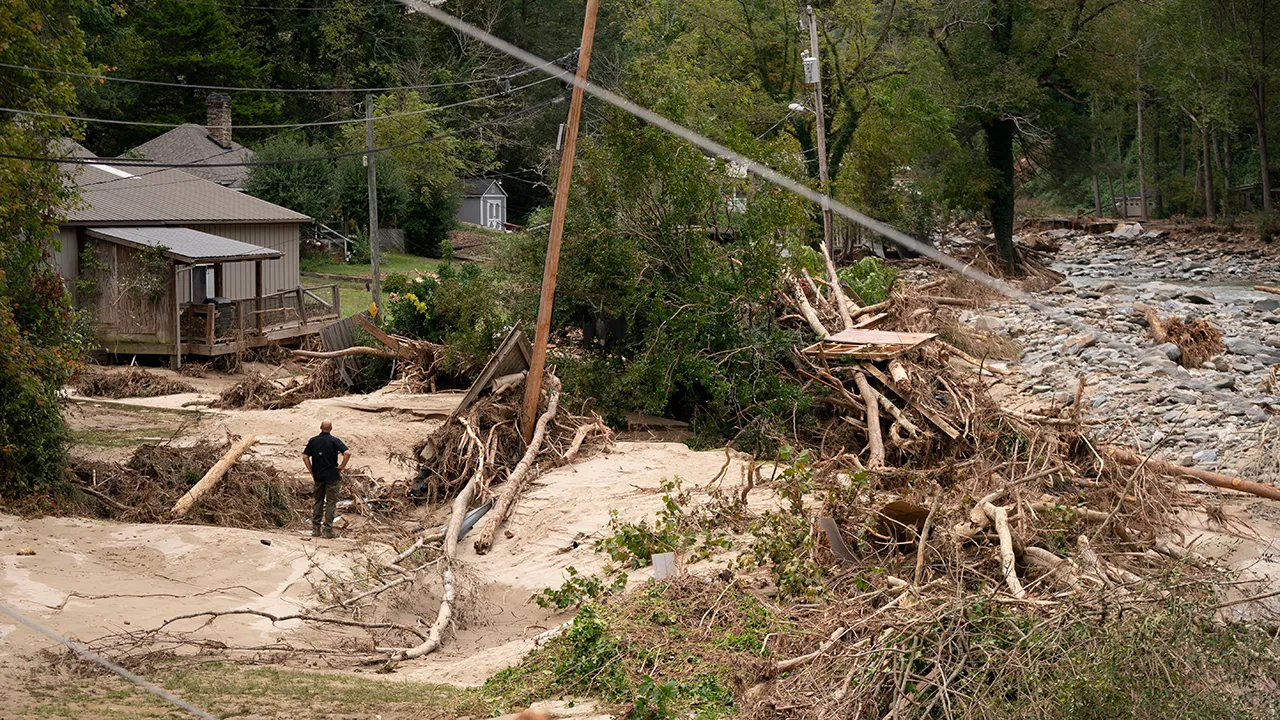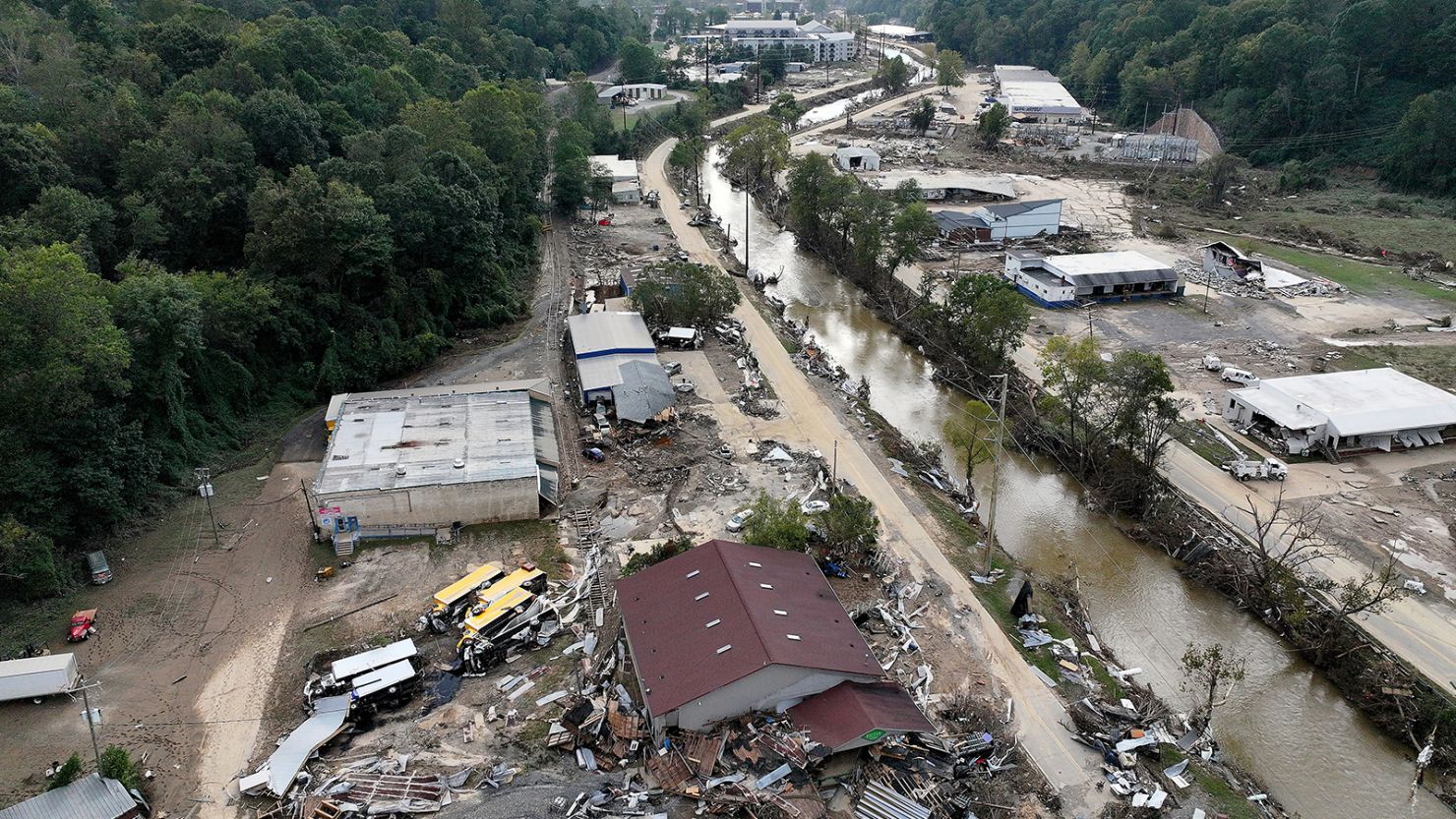In late September 2024, as Hurricane Helene began its devastating path from Florida to the southern Appalachians, Kim and Rod Ashby visited their nearly completed home in Elk Park, North Carolina. Despite the light rain, the couple felt secure in their elevated home, designed to be 20 feet above ground near the Tennessee border. However, the calm was deceptive, as forecasts predicted significant flooding and landslides due to saturated ground conditions prior to the hurricane’s arrival.
On the morning of September 27, disaster struck as the Ashbys were having breakfast. A sudden surge of water from the Elk River swept their house away. Rod Ashby managed to grab his wife Kim and their three dogs, initially clinging to an old mattress and then a section of wall as the current became overwhelming. Tragically, as the structure broke apart, Kim was separated from Rod, who was left desperately searching for her along the riverbank.
Over a week after the storm, Kim Ashby remains missing, one of many unaccounted for in the wake of Hurricane Helene, which claimed at least 231 lives across several states. The hurricane’s impact was particularly severe in North Carolina, where over 100 deaths have been recorded and hundreds more remain missing. The situation has led President Biden to deploy additional troops to assist in recovery efforts, following an earlier deployment of 1,000 troops to support ongoing operations in the hard-hit areas.
The storm made landfall as a Category 4 hurricane on September 26, unleashing a destructive 500-mile path that resulted in catastrophic flooding and widespread power outages. In Asheville, North Carolina, the aftermath of the storm was particularly grim, with reports of a strong smell of decay permeating the air. The local medical examiner’s office struggled to keep up with the death toll as they awaited assistance from state authorities to manage the overwhelming number of casualties.

Hurricane Helene Leaves Trail of Destruction and Loss in North Carolina as Search Continues for Missing Residents
Asheville and its surrounding areas experienced unprecedented rainfall, leading to flooding that transformed neighborhoods. Communities, some already isolated by mountainous terrain, faced additional challenges with downed roads and communication outages. Many residents reported the loss of entire neighborhoods, as well as the psychological trauma of not knowing the whereabouts of their loved ones amid the devastation.
In Chimney Rock, a small village near Asheville, the destruction was total, with every building either destroyed or severely damaged. Mayor Peter O’Leary described the situation as a complete loss of what the community once was. As locals attempted to rescue stranded individuals and deliver essential supplies, the reality of the situation was stark: their homes and livelihoods had been swept away.
In the wake of the disaster, search, and recovery efforts transitioned from immediate rescues to systematic searches through debris in the hardest-hit areas. Emergency services faced challenges due to the sheer scale of destruction, with many residents trapped in remote locations. Local volunteers and authorities employed various means, including pack mules and helicopters, to reach those cut off from help.
Kim Ashby, a beloved figure in her community and a dedicated teacher, has left her family desperate for news. Rod Ashby, who survived the ordeal, continues to search for his wife, holding onto hope that she may have escaped the flooding.
Her daughter described Kim as a fighter, emphasizing her resilience and the love and support of her family during this harrowing time. Search teams equipped with helicopters and drones have been deployed, but the search for Kim remains ongoing, reflecting the broader struggle many face in the aftermath of Hurricane Helene.











































